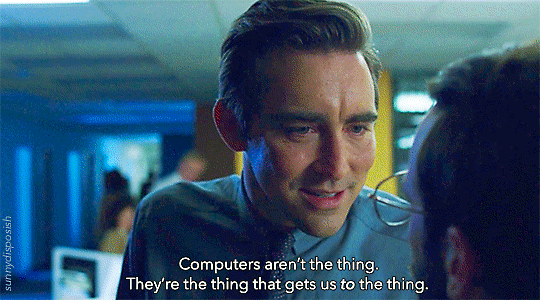Size Matters
My mom has a tendency to buy these really terribly spec’d Windows machines. She’s been doing it for as long as I’ve been alive. I was surprised when on one of our latest Zoom calls she said “You know what, I’m beginning to think that size matters.” I’ve only been telling her this for years! Here’s the problem.
There are a bunch of shitty Windows machines you can buy that cost around $400 dollars and have something like 4GB RAM. For consumers, this is really compelling; the price seems right. The problem is when they start trying to use the machine to do anything, it runs at a snails pace and leaves them with the world’s worst user experience. My mom continually complained about how slow her computer was and I continually said it’s because it’s a shit machine and you have to spend more to actually get good specs.
Apple wouldn’t be caught dead selling a machine with 4GB of RAM. They know better than that and care about the experience the end user has. My sister has been lucky enough to never have to buy a computer since she continually inherits my old ones. After my mom had finished saying that “size matters,” my sister noted that my MacBookPro I gave her in 2012 still runs great and is fast. This is no surprise to me because at the time I bought that computer it was the top of its line and had 16GB of RAM. Today, that model goes up to 64GB of RAM but 16GB is definitely enough for my sister to run a browser and do what she needs for work (although Chrome is really pushing the limits these days).
It infuriates me to no end that consumers have an option of even buying a $400 computer that will give them such a terrible experience. The price is great but the experience is terrible. Even if consumers have a daughter continually telling them that “size matters,” they might still make the very innocent mistake of buying the machine and realizing later that it is a lemon. It is not their fault. Manufacturers of computers should be embarrassed for even selling such a shit machine. I know I would be.
A few articles and papers have surfaced lately on migrating threads and processes to different kernels. One of these is called popcorn1. Another has been dubbed teleforking2. I’m not going to get into the details, but in essence, what people are trying to do is move a process from one computer to another. This is great! This could be a huge problem solver for folks with computers that have terrible specs. It could also mean a lot for the future of consumer computers.
Imagine a computer where if you were running especially hot and your user experience had been compromised… the computer realizes this and forks your process into a remote data center, while maintaining a great user experience locally. It would need to be seamless and invisible to the end user. If the process is a GUI it would need to still have the user interface rendering locally while most of the compute is remote. If the process is a job streaming output into a terminal it is a bit easier. Both should be possible.
Future computers should not have limited computing power, just limited local computing power. This wouldn’t need to just be for your laptops or desktops, your VR headset or gaming console could fork processes to other available computers when they needed more computing power. The remote compute would not always need to be in a data center. An overburdened laptop could fork a process to your gaming console while you were at work and vice-versa while you were playing a game.
Compute should be easily shared and readily available. While consumers should not even have an option of buying a machine with terrible specs that lead to a terrible user experience, the ability to offload processes to another computer would allow them to have a great experience even on a lemon. As I see it, this should be the future of consumer computing. People should be able to create anything they imagine on a computer that gives them unlimited power to do so. To quote one of my favorite lines from Halt and Catch Fire: “Computers aren’t the thing. They’re the thing that gets us to the thing.”
